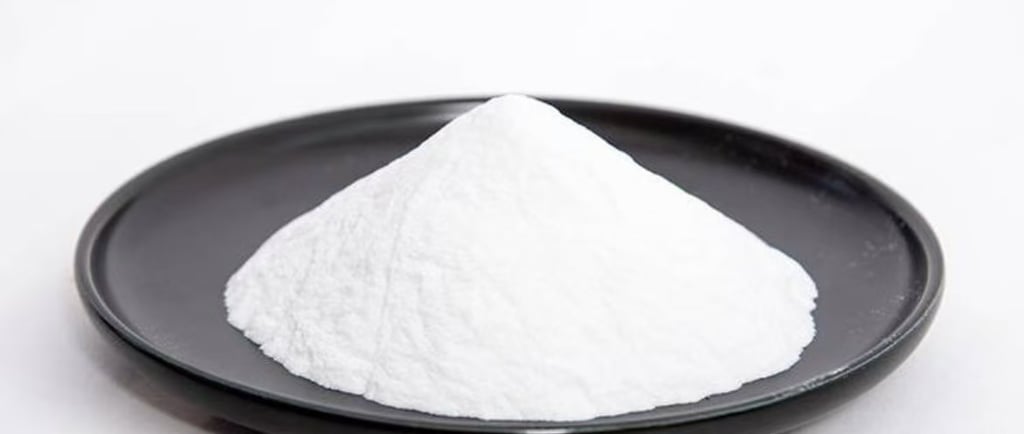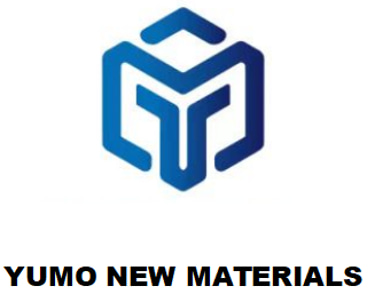HENAN YUMO: Engineered Precision, Uncompromised Performance
White Fused Alumina: The Lustrous Cornerstone of Industrial Manufacturing – A Panoramic Analysis of Applications
Complete list of application functions of WFA
7/1/20256 min read


White Fused Alumina: The Lustrous Cornerstone of Industrial Manufacturing – A Panoramic Analysis of Applications
In the world of industrial manufacturing, one material stands out as an indispensable cornerstone across numerous fields due to its exceptional hardness and pure texture – White Fused Alumina (WFA). As a distinguished member of the synthetic corundum family, WFA (primarily composed of α-Al₂O₃) plays an irreplaceable role in the modern industrial system. Characterized by its white appearance, extreme hardness (Mohs hardness of 9, second only to diamond and silicon carbide), outstanding wear resistance, excellent chemical stability, and superior high-temperature performance, WFA is a critical material. Yumo Advanced Materials has deep expertise in the WFA field, fully understanding its performance characteristics and industrial value. This article will guide you into the vast realm of WFA, comprehensively analyzing its in-depth applications across various industries.
I. Sharp Edge: The Core Pillar in Grinding and Polishing
This represents the most traditional and mature application field for WFA, a position solidified over time.
Precision Grinding Tools:
High-End Abrasive Tool Manufacturing: WFA abrasive is the core material for manufacturing high-performance grinding wheels, grinding heads, abrasive blocks, and oil stones. Its sharp, multi-faceted crystalline structure effectively cuts various metals (such as alloy steels, high-speed steel, hardened steel), cemented carbides, and non-metals (like ceramics, glass). Especially in precision grinding, tool sharpening, gear grinding, and crankshaft grinding, where high precision and excellent surface finish are required, WFA grinding wheels demonstrate superior performance.
The Soul of Coated Abrasives: WFA is one of the preferred abrasives for producing coated abrasives like sandpaper, abrasive belts, abrasive cloth, sanding discs, and abrasive sleeves. Its high hardness and good self-sharpening properties make WFA belts/papers widely used in woodworking (sanding, thicknessing), metal surface treatment (rust removal, weld grinding, deburring), and composite material finishing, offering high efficiency and long life.
The Pursuit of Ultimate Polishing:
Fine Polishing of Hard Materials: WFA micro-powders (typically W-grit and finer) are ideal for ultra-precision polishing of hard, brittle materials such as optical glass, LCD display glass, monocrystalline silicon wafers, sapphire substrates, precision ceramic components, cemented carbide tools, and high-grade stainless steel utensils. Their high purity, hardness, and uniform particle size effectively remove micro-scratches, achieving nanometer-level surface roughness and a mirror finish.
High-End Surface Finishing: In the final surface finishing of products like watch cases/straps, jewelry, medical devices, and high-end hardware components, WFA polishing compounds or slurries deliver exceptional gloss and texture.
II. Strength and Precision: The Powerhouse in Blasting and Surface Engineering
WFA's hardness and angular characteristics make it excel in surface cleaning, strengthening, and preparation.
Efficient Abrasive Blasting:
Expert in Rust and Scale Removal: WFA abrasive is widely used for blast cleaning large workpieces like ships, bridges, storage tanks, steel structures, and construction machinery to remove rust, scale, and old paint. Its strong impact force and high efficiency achieve a very clean metal surface (up to Sa2.5-Sa3 standards), providing a perfect substrate for subsequent coating.
Precision Component Cleaning: For engine parts, aerospace components, precision castings, etc., WFA blasting effectively removes burrs, flash, and micro-residues without damaging the dimensional accuracy of the substrate.
Surface Strengthening and Preparation:
Stress Peening Guardian: WFA blasting can perform shot peening on metal surfaces, introducing beneficial compressive stress layers that significantly improve the fatigue strength and service life of critical components like springs, gears, crankshafts, and aircraft landing gear.
Coating Adhesion Guarantee: Before processes like thermal spraying (e.g., ceramic coatings, metal coatings), painting, electroplating, or enameling, WFA blasting roughens the surface, dramatically increasing coating-to-substrate adhesion.
Decorative Effect Creation: By controlling WFA grit size and blasting parameters, uniform matte, brushed, or satin finishes can be achieved on surfaces like stainless steel, aluminum, and glass.
III. Forged in Fire: The Sturdy Backbone of Refractories and Metallurgy
WFA's exceptional high-temperature performance and chemical inertness make it a key material in harsh, high-temperature environments.
Premium Refractory Materials:
High-Temperature Furnace Linings: WFA is a core raw material for manufacturing high-performance refractory bricks (e.g., corundum bricks, chrome-corundum bricks), castables, ramming mixes, and pre-cast shapes. Its high melting point (~2050°C), high refractoriness under load, excellent thermal shock resistance, and resistance to slag erosion make it ideal for lining critical high-temperature zones in steel metallurgy (blast furnaces, hot blast stoves, ladles, torpedo cars), glass melting furnaces, ceramic roller kilns, and petrochemical cracking furnaces, significantly extending lining life.
Functional Refractory Components: WFA is used to manufacture key functional refractories for continuous casting, such as slide gates, submerged entry nozzles, stopper rods, and metering nozzles, demanding extreme thermal shock resistance, erosion resistance, and dimensional stability to ensure safe and efficient casting.
High-Temperature Kiln Furniture: WFA-based setters, pusher plates, posts, and beams offer ultra-high hot strength, very low creep, and superior thermal shock resistance, serving as crucial support components in the sintering of advanced products like electronic ceramics, structural ceramics, and magnetic materials.
Metallurgical Auxiliaries and Refining:
Steel Melt Purifier: High-purity WFA powder acts as an efficient deoxidizer and desulfurizer (often used compositely) in steelmaking, helping remove harmful impurities, improve steel cleanliness, and enhance steel properties.
Special Alloy Smelting: WFA crucibles and furnace linings are chosen for smelting special alloys like superalloys, precision alloys, and ferroalloys due to their excellent resistance to molten metal erosion.
IV. Light of Technology: The Precision Partner in High-Tech Fields
WFA's purity and physical properties have secured it unique positions in cutting-edge technologies.
Semiconductors & Integrated Circuits:
Wafer Manufacturing Foundation: Ultra-high purity (>99.99%) sub-micron/nanoscale WFA powder is a key component of Chemical Mechanical Polishing (CMP) slurries in semiconductor wafer manufacturing. It's used for global planarization of silicon wafers, inter-layer dielectrics (ILD), shallow trench isolation (STI), copper interconnects (Cu CMP), etc., critical for chip yield and performance.
Precision Grinding & Thinning: WFA abrasives are used in precision wafer processing steps like backside thinning and edge grinding.
Advanced Ceramics & Functional Materials:
Structural Ceramic Reinforcement: WFA particles or whiskers are incorporated as reinforcing phases into structural ceramic matrices like alumina or zirconia, significantly enhancing strength, toughness, and wear resistance for high-performance cutting tools, wear-resistant seals, and armor materials.
Functional Ceramic Matrix: High-purity, fine-grained WFA itself is an excellent matrix material for electronic ceramics and transparent ceramics (e.g., high-pressure sodium lamp tubes).
Catalyst Support: Specialty WFA materials with high specific surface area and thermal stability serve as ideal catalyst supports in automotive exhaust purification and petrochemical processes.
Optics & Display Technology:
Optical Component Processing: WFA micro-powders are used for precision grinding and polishing of optical glass, crystals (e.g., CaF₂, MgF₂), and infrared materials.
Display Panel Manufacturing: WFA abrasives play vital roles in processes like glass substrate cutting and edge grinding/polishing for LCD and OLED panels.
V. The Versatile Performer: Diverse Applications Across Industries
WFA's reach extends far beyond, finding crucial roles in seemingly unrelated yet vital fields:
Filtration & Separation:
Advanced Water Treatment: WFA granules, due to their high hardness, chemical stability, uniform particle size, and good hydrophilicity, are used as filter media in water treatment systems (replacing quartz sand, anthracite). They are particularly suitable for pre-filtration in Reverse Osmosis (RO) systems, effectively removing suspended solids and colloids, protecting RO membranes, and extending system life.
Chemical Packing: Used as structured or random packing in chemical towers, providing high surface area and good fluid dynamics.
Wear-Resistant Protective Coatings:
Thermal Spray Shield: WFA powder forms hard, wear-resistant, corrosion-resistant ceramic coatings on metal substrates via plasma or flame spraying. Widely used on mechanical seals, pump/valve wetted parts, wear-prone engineering machinery components, and oil drilling tools.
Advanced Grinding Media:
Grinding & Polishing Balls: High-density, high-hardness WFA grinding balls are efficient media in ball mills, vibratory mills, and attritors for grinding hard materials (ceramic powders, magnetic materials, pigments, cosmetics, pharmaceuticals), offering low wear rates and minimal contamination (low Fe content).
Special Functional Fillers:
High-Performance Composites: WFA powder acts as a functional filler in polymers, rubber, and plastics, enhancing thermal conductivity, wear resistance, hardness, dimensional stability, and dielectric properties.
Wear-Resistant Flooring & Pavement: WFA aggregate is mixed into epoxy mortars or concrete to lay highly wear-resistant, anti-slip industrial floors, walkways, and ramps.
VI. Green & Future: Sustainable Development of WFA Applications
As environmental requirements tighten and sustainability principles deepen, WFA applications show green trends:
Replacing Silica Materials: In blasting, WFA is progressively replacing silica sand to eliminate the occupational health risk of silicosis.
Recycling Potential: Waste WFA abrasive from grinding, blasting, etc., can be partially recycled through appropriate sorting, purification, and regeneration processes, reducing resource consumption and environmental burden.
Energy Saving & Emission Reduction: High-performance WFA refractories indirectly save energy and lower carbon emissions by improving furnace thermal efficiency and extending service life.
Low-Pollution Characteristic: Chemically stable and free of heavy metals or other harmful substances, WFA is safe for use in water treatment and food-grade polishing.
Conclusion: Infinite Possibilities, Rooted in Excellence
From traditional grinding and polishing to cutting-edge semiconductor fabrication; from steel-making furnaces to pristine cleanrooms; from massive ships and bridges to intricate medical devices – White Fused Alumina, with its unparalleled hardness, exceptional stability, pure texture, and broad adaptability, is deeply woven into the fabric of modern industrial civilization.
Yumo Advanced Materials profoundly understands that the value of WFA extends far beyond its inherent physical and chemical properties. It lies in how we maximize its performance for vastly different application scenarios through precise particle size control, morphology optimization, surface treatment, and scientific formulation design, delivering customized solutions. Whether pursuing ultimate grinding efficiency, withstanding extreme furnace temperatures, achieving ultra-clean wafer surfaces, or demanding long-lasting wear-resistant coatings, WFA consistently provides powerful foundational support for industrial progress with its "strength, resilience, and adaptability."
Looking ahead, as new materials, processes, and demands continuously emerge, the application boundaries of WFA will inevitably expand further. Its potential for development in high-performance, green, and functionalized directions is immense. Yumo Advanced Materials remains committed to innovation and application development in WFA technology. We will collaborate with customers and partners to unlock the infinite potential of these "industrial teeth," contributing to a more efficient, precise, and sustainable industrial future. The comprehensive guide to White Fused Alumina applications is a glorious chapter still being written.
